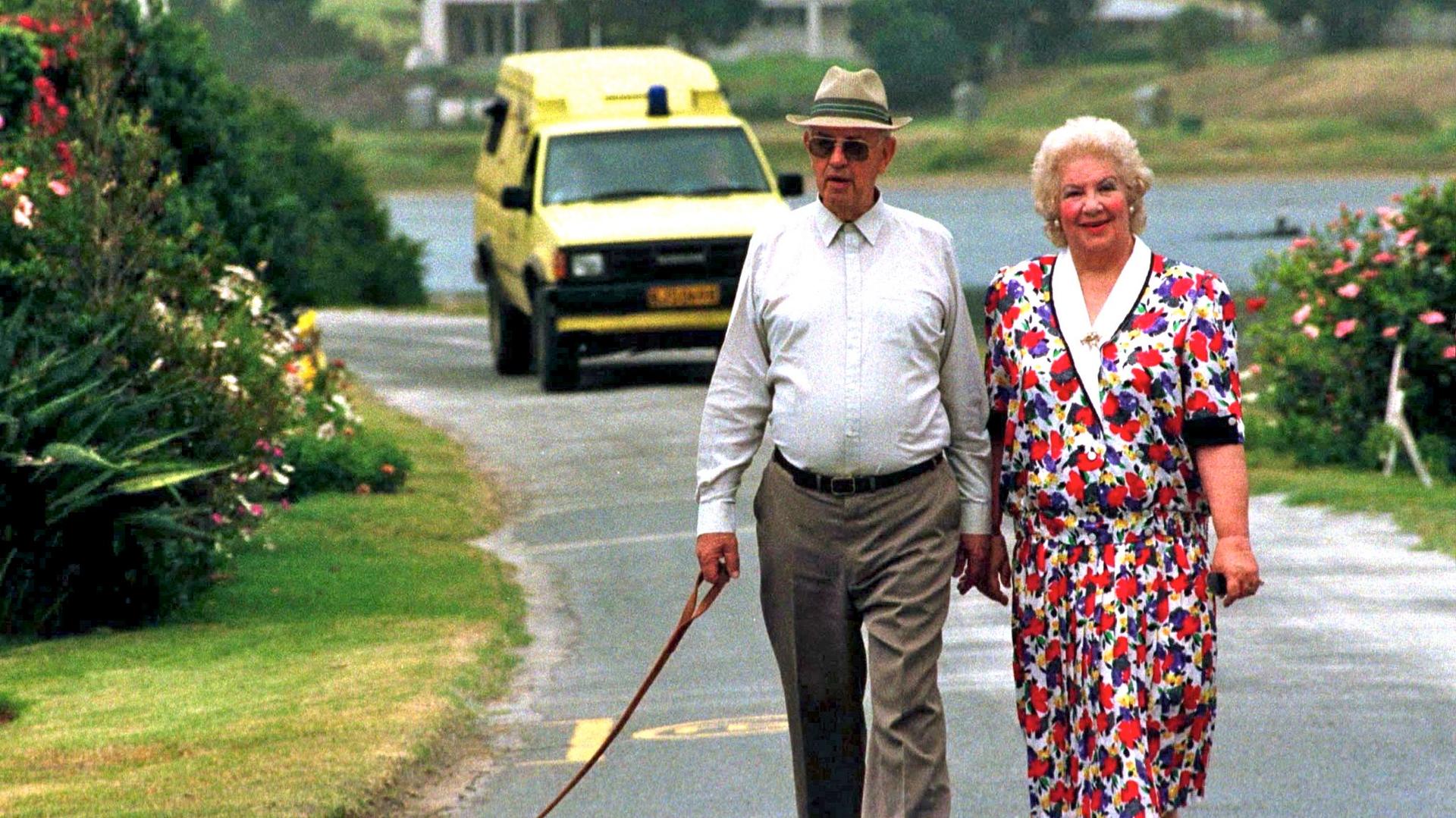Ever wonder how South Africa’s former leaders justified apartheid?
Former South African president P.W. Botha and his wife Elize take a walk outside their retirement home in Wilderness, South Africa, in May, 1995.
It's been nearly 20 years since South Africa's first free election. Sometimes it's hard to remember how the country's former leaders justified their apartheid policies.
The BBC's John Humphrys started reporting from South Africa in the 1970s, more than a decade into Nelson Mandela's imprisonment. He has returned many times since.
One of his most memorable encounters was with P. W. Botha, the hardline president of South Africa in the mid-1980s. Botha militarized South Africa's police, and founded the counter-insurgency unit Koevoet, which targetted allies of Mandela's African National Congress abroad.
Humphrys asked Botha why black South Africans had no right to move freely around the country. "We have housing problems," replied Botha. "We have work problems. And we cannot just allow people to move where they want to. South African conditions are quite different from European conditions."
"But doesn't simple justice suggest that blacks should be treated exactly the same as whites?" asked Humphrys.
Botha interrupted. "Simple justice suggests that you must allow a black man with his family to live a healthy, decent life. And you must provide work, where possible, for him, and not allow him to squat on your doorstep… and then, in the name of Christianity, say now that you've done your duty towards him." He felt apartheid did that.
The conversation then turned to the race-based riots and killings that were threatening to make South Africa practically ungovernable.
"Many people say South Africa inevitably faces internal revolution because of its racial policies," Humphrys said.
"People have said so over a period of 300 years," he said. "And, today, South Africa is one of the most peaceful countries in the world to live in."
Of course, it wasn't. And a few years later, Botha's successor, F.W. de Klerk, released Nelson Mandela from prison and negotiated an end to apartheid and white minority rule.
Botha died in October 2006. To the end, he defended the apartheid system and his role in it.
